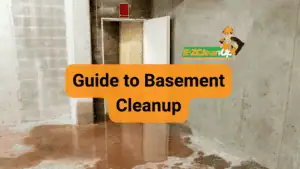Transform your unused items into meaningful impact while decluttering your home with strategic donation partnerships
Introduction: From Chaos to Compassion
Every spring, millions of households across America face the same challenge: overflowing closets, cluttered basements, and rooms filled with items that once seemed essential but now gather dust. What if that pile of “someday” clothes and forgotten furniture could become a force for good in your community?
In 2023, Americans gave an estimated $557.16 billion to charities, with total giving growing 1.9% in current dollars, proving that the spirit of generosity is alive and thriving. By turning your decluttering project into a strategic charitable giving opportunity, you’re not just organizing your space—you’re joining a movement that transforms communities.
Why Donation Partnerships Matter More Than Ever
The Growing Need for Strategic Giving
In 2024, charities increasingly identified corporate partnerships as a vital source of high-value income, with many organizations establishing dedicated corporate fundraising teams or expanding existing ones to focus on building these relationships. This trend extends to individual donors who want their contributions to have maximum impact.
The traditional model of dropping items at the nearest donation center is evolving. Today’s most effective givers understand that strategic partnerships between donors, charities, and even pickup services can multiply the impact of every donated item.
Environmental and Social Benefits
For every kg of clothes re-homed, you save the planet 25kg of CO2 and 10,000 litres of fresh water. When you choose donation partnerships over disposal, you’re addressing two critical issues simultaneously: reducing waste and supporting community organizations.
5 Strategic Ways to Build Donation Partnerships
1. Partner with Habitat for Humanity ReStore
Why This Partnership Works: The money raised by Habitat ReStores helps families build a decent and affordable place to call home. When the items you donate to ReStore are sold, the money helps build homes, communities and hope.
What They Accept:
- Furniture and appliances
- Building materials and tools
- Home décor and housewares
- Working electronics
Pro Partnership Tip: Many Habitat ReStores offer free pickup of large items, including furniture pickup, and you should call your ReStore to confirm donation hours, which can differ from store hours.
2. Create Corporate Matching Gift Opportunities
Many companies offer donation matching programs that can double your impact. Google matches up to $10,000 in donations per employee each year and not only matches personal donations to nonprofit organizations, but also matches money employees personally raise for charitable events.
Action Steps:
- Check with your HR department about matching gift programs
- Research whether your company partners with specific charities
- Coordinate group donation drives with colleagues
3. Establish Specialized Item Partnerships
Different organizations excel at handling specific types of donations:
Professional Attire: Partner with organizations like Dress for Success or Career Gear that help job seekers with professional clothing.
Electronics: Organizations like the National Coalition Against Domestic Violence receive funds from refurbished electronics to support victims and survivors, accepting used cell phones, laptops, digital cameras, video game systems, and MP3 players.
Furniture: The Furniture Bank Network provides gently used household furnishings to individuals or families who are struggling to furnish their homes.
4. Leverage Pickup Services for Maximum Convenience
When looking at the easiest way to go about donating, you would simply need to research charities that offer free donation pick up. Services like GreenDrop and Salvation Army pickup services eliminate transportation barriers while supporting multiple charitable causes.
Benefits of Pickup Partnerships:
- Saves time and transportation costs
- Enables donation of larger items
- Often supports multiple charities through one pickup
5. Build Year-Round Giving Relationships
Instead of seasonal purges, establish ongoing partnerships with local organizations. Services like Green Drop support multiple charitable causes, with proceeds from donated items going directly to organizations including the American Red Cross, the Military Order of the Purple Heart, the National Federation of the Blind, and Society of St. Vincent de Paul of Philadelphia.
Maximizing Your Tax Benefits Through Strategic Partnerships
Understanding the tax implications of your donations can significantly increase their value. Charitable contributions are tax-deductible, and according to the IRS Publication 526, there are special rules for certain items that are donated.
Key Tax Strategies:
- Keep detailed records of all donations
- Take photos of donated items
- Get receipts from qualified organizations
- Understand fair market value guidelines
Measuring Your Impact: Beyond Just Decluttering
Community Impact Metrics
When you establish donation partnerships, track more than just the number of bags donated:
- Families housed (through Habitat partnerships)
- Job seekers helped (through professional attire donations)
- Environmental impact (CO2 and water saved)
Personal Benefits
Research shows that strategic giving creates lasting personal benefits:
- Reduced stress from organized living spaces
- Increased sense of community connection
- Enhanced feelings of purpose and fulfillment
Getting Started: Your 30-Day Donation Partnership Challenge
Week 1: Assessment and Research
- Inventory items to donate by category
- Research local partner organizations
- Identify pickup services in your area
Week 2: Establish Partnerships
- Contact 3-5 organizations about their needs
- Set up pickup appointments
- Verify tax documentation processes
Week 3: Execute Your Plan
- Prepare items for donation
- Complete pickups and drop-offs
- Document everything for tax purposes
Week 4: Evaluate and Expand
- Assess the process and results
- Plan for ongoing partnership relationships
- Share your success story to inspire others
Common Mistakes to Avoid in Donation Partnerships
- Assuming all items are welcome: Always check acceptance guidelines
- Ignoring condition requirements: Most organizations need items in good condition
- Forgetting seasonal needs: Some items are needed more during specific times
- Overlooking pickup requirements: Confirm pickup policies and restrictions
- Missing tax documentation: Always get proper receipts and documentation
Conclusion: Your Clutter, Your Community’s Gain
Turning clutter into charity through donation partnerships isn’t just about cleaning house—it’s about building a more connected, sustainable community. Every item you thoughtfully donate through strategic partnerships creates ripple effects that extend far beyond your newly organized closet.
The key lies in moving beyond random donations to purposeful partnerships that align with both your decluttering goals and community needs. Whether you’re helping families build homes through Habitat ReStore, supporting job seekers with professional attire, or enabling corporate matching gifts, your strategic approach to donation partnerships can transform both your space and your community.
Start small, think strategically, and remember: today’s clutter can become tomorrow’s community building blocks. Your partnership with local charities doesn’t just clear your space—it creates space for others to thrive.
Ready to transform your clutter into community impact? Start by identifying one organization in your area that aligns with your values, and take the first step toward meaningful donation partnerships today.
References
- CharityWatch: Top Rated Charities – America’s most independent charity watchdog providing ratings and guidance for donors
- Habitat for Humanity ReStore Donation Guide – Comprehensive guide to donating goods that build homes and communities
- Giving USA 2024 Report – Annual report on philanthropy providing comprehensive charitable giving data
- Apartment Therapy: 13 Lesser-Known Places to Donate – Specialized donation opportunities for specific items
- Charity Navigator – Comprehensive charity ratings and donor resources for confident giving













